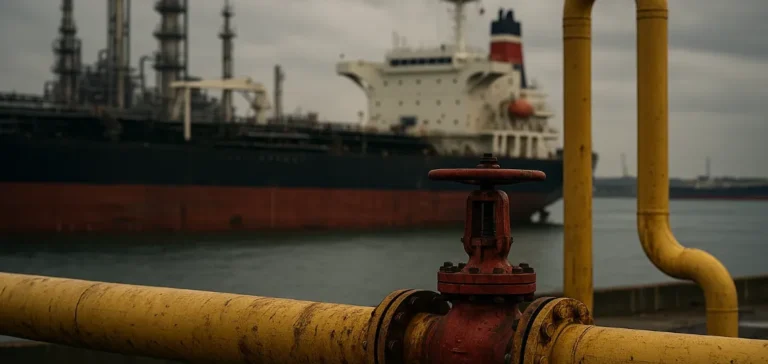G7 (Group of Seven) related maritime operators are sharply reducing their exposure to Russian crude oil transport. This change is linked to the lower price cap imposed by the European Union, the United Kingdom and Canada, aiming to restrict Moscow’s financial maneuvering. Greek companies, Europe’s leading shipping nation, are redirecting their vessels to avoid any compliance risks with Brussels.
Immediate impact on oil flows
This decision has led to a noticeable decline in volumes carried by vessels registered or operated from Greece. Outbound flows from Russia on G7-related ships now account for a minority of the total, whereas they represented a much larger share in previous months. The tightening of tariff rules, with a cap set at 47.60 dollars per barrel compared to 60 dollars previously, has created operational uncertainty for shipowners.
The growing role of the parallel fleet
At the same time, a so-called parallel fleet is taking over. These vessels, often registered in jurisdictions such as the United Arab Emirates or Hong Kong, allow Russia to maintain its exports despite the gradual withdrawal of European shipowners. This informal fleet, composed of older vessels or those with opaque legal status, now captures a growing share of Russian oil trade.
Consequences for the Indian and Asian markets
India remains one of the main outlets for Russian crude, but shipments arriving on G7-related ships have declined, replaced by volumes carried by the non-Western fleet. This reallocation reflects Moscow’s adaptation strategy, which offsets the departure of European shipowners by reaching agreements with operators based in Asia or offshore jurisdictions. The observed trends suggest this reconfiguration could permanently alter trade balances.
A market under freight pressure
Freight rates on certain strategic routes are rising, a direct consequence of the increased demand for vessels willing to operate under fragmented sanctions. Active carriers now demand a risk premium, which raises transaction costs for Asian buyers. The evolution of Russian crude prices, still attractive for some countries, remains closely watched in a context where negotiation margins are narrowing.






















